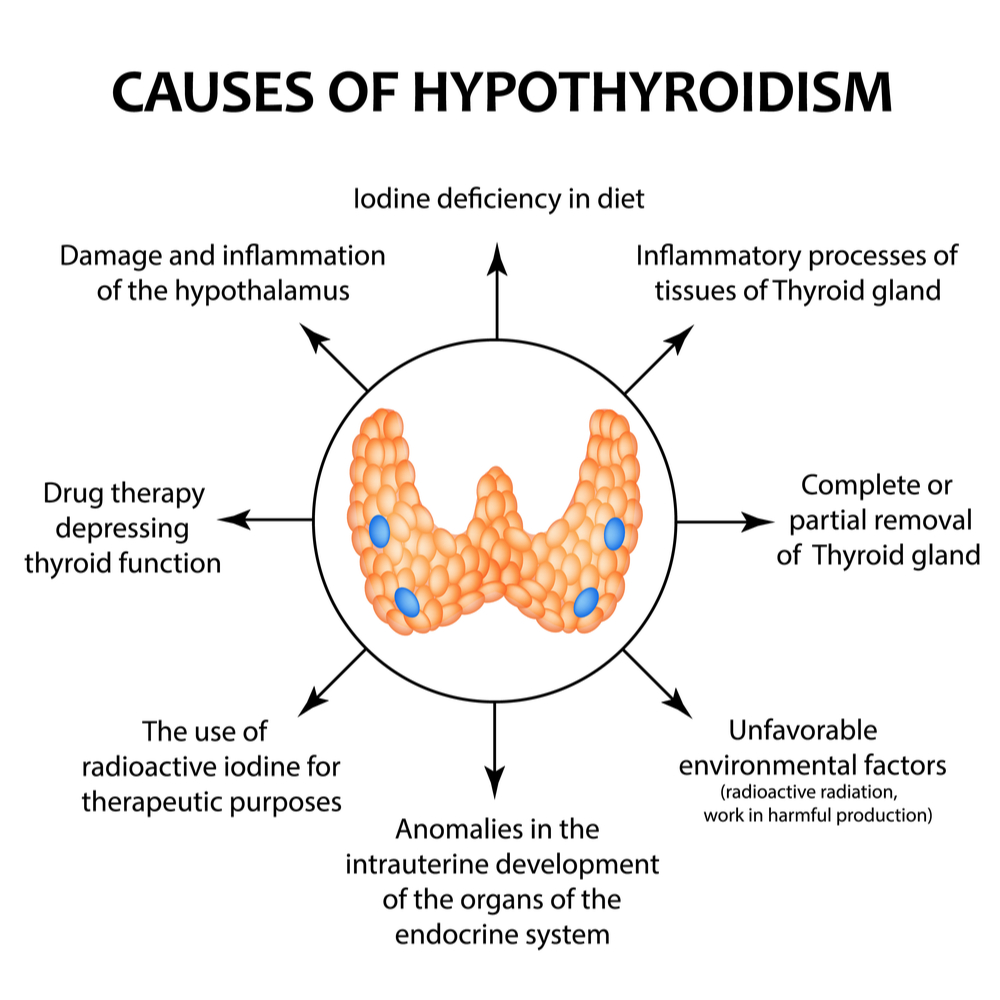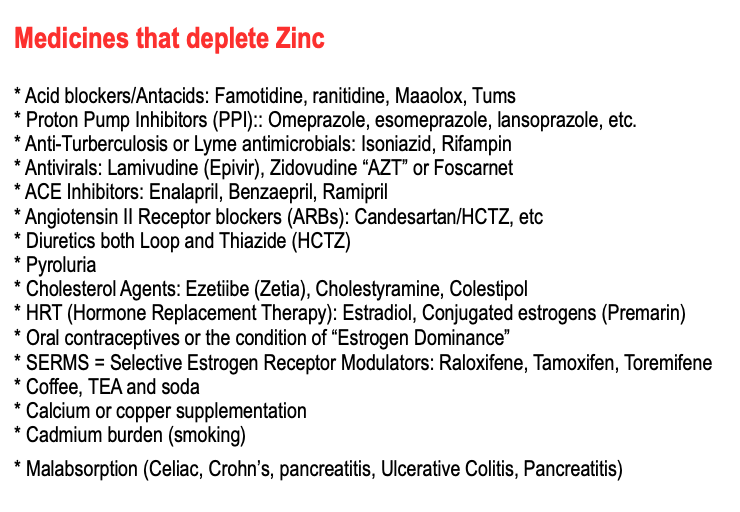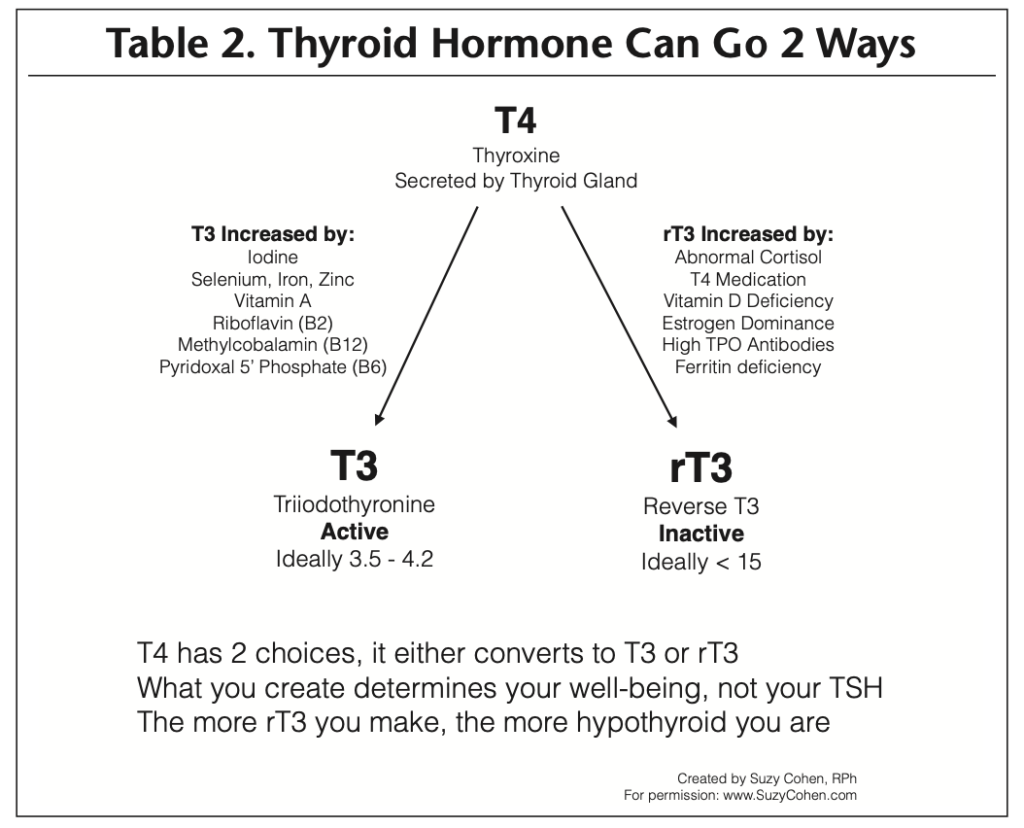What's On This Page?
ToggleMany people already know that iodine deficiency is one reason for insufficient thyroid hormone, but you may not realize that much more is at play when it comes to total thyroid gland health. There are a number of minerals that are essential for thyroid activation, for example, selenium and zinc. You don’t hear much about those two, however, a deficiency of either mineral will lead to poor activation of T4 to T3. Do you know what that means?
It means that T4 won’t convert to T3, and that would be a type of “hypothyroidism.” Put differently, if you can’t convert the T4 (inactive) to T3 which is active, then you will feel most of the symptoms of hypothyroidism. I discuss this in great detail in my best-selling book entitled, Thyroid Healthy: Lose Weight, Look Beautiful and Live the Life You Imagined.
Selenium and zinc are needed for the metabolic pathway that converts T4 to T3, and medications to restore the thyroid hormone never hit the root cause, although they may help if they have T3 in them. But what if you’re zinc deficient because you take a drug mugger of zinc, for example, you take Famotidine every day for your reflux?
Over time, you will likely become zinc deficient (and for that matter deficient in many other minerals like magnesium, selenium or iodine because the pH of your gut has changed, and these minerals no longer get absorbed properly).
But for the sake of our example, let’s say you’re zinc deficient, and not feeling symptoms of hypothyroidism. Your doctor may see on your labs that you’re TSH is high, indicating that your thyroid hormones are low. And seeing that, your doctor may now prescribe Synthroid® or Levothyroxine for you, which is a T4 drug. But what is going to happen now? Is that useful, do you think? Of course not, in this specific example, the lack of zinc is going to be an obstacle for you, and it will continue to prevent that new T4 drug you’re taking from converting to T3.

If you don’t have enough T3, you don’t feel well.
In this case, the resolution would be to recognize that you (the patient) is taking a strong drug mugger of zinc, and know the connection between zinc and thyroid hormone activation. For many people, this is a problem that persists for years and it shouldn’t because zinc levels are easy to test for.
Want to know what else suppresses conversion from T4 to T3?
Statin drugs, corticosteroids and wine! Statins are also more likely to induce muscle damage in people with low thyroid.

Reverse T3 is a Hibernation Hormone
One more important thing: You have both regular T3 (which is active, it works!) and you have something called reverse T3 (noted as rT3). And both these guys (the rT3 or the regular T3) compete for the same binding site, so you don’t want all of your thyroid hormone stored as rT3. You want some of it that way, but not a ton of rT3 because that will make you feel hypothyroid.
It happens because high levels of rT3 put you into hibernation by sitting on the cell’s receptor (the doorway to the cell) and blocking active thyroid hormone (T3) from getting into the cell where it does all the good work.
It may be an oversight to not do the blood test for reverse T3 because if you are rT3 dominant, you will feel anxious, fatigued, cold and sad which are the symptoms of hypothyroidism. The scary part is that your TSH and your Free and/or Total T4 levels might be in perfect range so you will be dismissed and misdiagnosed.

The levels of rT3 can be evaluated in a blood test. Certain issues including a stressful situation will cause a person to create more of the rT3 than is healthy. For example, people with chronic infections or inflammation will tend to have more rT3, as will someone who has heavy metal burden and liver and/or kidney dysfunction.
If you have many of the symptoms in the graphic shown “Symptoms of Hypothyroidism” I recommend that you have a complete thyroid panel done. You can ask your physician to send you to the lab, or you can self-order nowadays. Here is a LINK to order a lab test for that through Direct Labs. I would also recommend you include the rT3 if you think your levels are too high.
In summary, the rT3 blocks the action of the active thyroid hormone T3. Less than 15 ng/dL or 150 pg/ml is considered optimal for healthy thyroid function. If you have further questions refer to my book, Thyroid Healthy or speak to to your endocrinologist about all the factors that contribute to thyroid disease.
Click Here to read my blog on The Top 11 Thyroid Supplements for Hypothyroidism.

Suzy Cohen, has been a licensed pharmacist for over 30 years and believes the best approach to chronic illness is a combination of natural medicine and conventional. She founded her own dietary supplement company specializing in custom-formulas, some of which have patents. With a special focus on functional medicine, thyroid health and drug nutrient depletion, Suzy is the author of several related books including Thyroid Healthy, Drug Muggers, Diabetes Without Drugs, and a nationally syndicated column.


